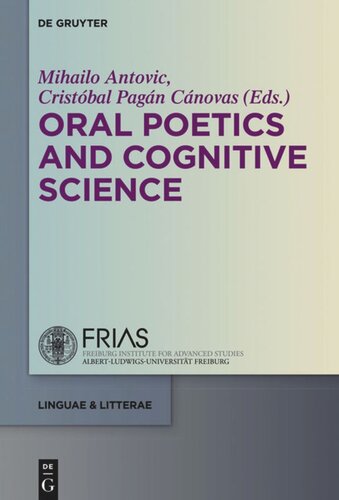

Most ebook files are in PDF format, so you can easily read them using various software such as Foxit Reader or directly on the Google Chrome browser.
Some ebook files are released by publishers in other formats such as .awz, .mobi, .epub, .fb2, etc. You may need to install specific software to read these formats on mobile/PC, such as Calibre.
Please read the tutorial at this link: https://ebookbell.com/faq
We offer FREE conversion to the popular formats you request; however, this may take some time. Therefore, right after payment, please email us, and we will try to provide the service as quickly as possible.
For some exceptional file formats or broken links (if any), please refrain from opening any disputes. Instead, email us first, and we will try to assist within a maximum of 6 hours.
EbookBell Team

4.7
16 reviewsWhat can oral poetic traditions teach us about language and the human mind? Oral Poetics has produced insights relevant not only for the study of traditional poetry, but also for our general understanding of language and cognition: formulaic style as a product of rehearsed improvisation, the thematic structuring of traditional narratives, or the poetic use of features from everyday speech, among many others. The cognitive sciences have developed frameworks that are crucial for research on oral poetics, such as construction grammar or conversation analysis. The key for connecting the two disciplines is their common focus on usage and performance. This collection of papers explores how some of the latest research on language and cognition can contribute to advances in oral studies. At the same time, it shows how research on verbal art in its natural, oral medium can lead to new insights in semantics, pragmatics, or multimodal communication. The ultimate goal is to pave the way towards a Cognitive Oral Poetics, a new interdisciplinary field for the study or oral poetry as a window to the mind.